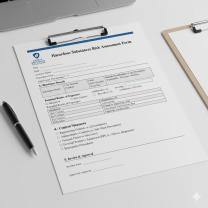What are the best tips for studying law?
Studying law requires a unique approach due to the volume of material, critical thinking demands, and the need to understand complex legal principles. Here are some tips and strategies to help you succeed in your law studies:
Stay Organized:
- Create a study schedule or calendar to manage your time effectively. Allocate specific time slots for reading, studying, and assignments.
Case Briefs:
- When reading cases, create concise briefs that include key facts, issues, holdings, and the reasoning behind decisions. This will help you review cases quickly and understand their significance.
Actively Participate in Class:
- Engage in class discussions, ask questions, and participate in mock trials or debates. Active participation not only enhances your understanding but also demonstrates your commitment to learning.
Use Multiple Resources:
- Don't rely solely on your class materials. Utilize supplementary resources such as textbooks, legal databases, and online resources to deepen your understanding of legal concepts.
Take Effective Notes:
- Develop a note-taking system that works for you, whether it's summarizing key points, using outlines, or creating concept maps. Review and revise your notes regularly.
Seek Clarification:
- If you don't understand a concept or case, don't hesitate to ask your professors or peers for clarification. Legal education often involves a steep learning curve, and seeking help when needed is essential.
Practice Legal Writing:
- Legal writing is a critical skill. Practice writing briefs, memos, and legal opinions to improve your ability to convey complex legal arguments clearly and persuasively.
Outline Your Courses:
- Create comprehensive outlines for each course to organize your notes and key concepts. Outlines are invaluable study tools for exams.
Use Study Groups Wisely:
- Join or form study groups with classmates, but be selective about group members. Collaborative learning can be beneficial for discussing complex cases and concepts, but it can also be unproductive if not managed effectively.
Stay Updated:
- Keep up with changes in laws and legal precedents. Legal principles can evolve, so staying informed is essential for practice and exams.
Practice Past Exams:
- Familiarize yourself with the format and type of questions asked on law exams by practicing past exams. This can help you become more comfortable with the exam environment and improve your exam strategy.
Apply IRAC Method:
- When answering legal questions, use the IRAC (Issue, Rule, Application, Conclusion) method to structure your responses systematically. Start by identifying the issue, stating the relevant rule, applying the rule to the facts, and concluding your analysis.
Stay Healthy:
- Prioritize your physical and mental health. Regular exercise, a balanced diet, and adequate sleep can enhance your cognitive abilities and help manage stress.
Practice Time Management:
- Allocate sufficient time to exam preparation. Avoid cramming, as understanding complex legal concepts takes time. Consistent, focused study sessions are more effective than last-minute cramming.
Stay Motivated:
- Remember your long-term goals and the reasons you chose to study law. Visualize your success and stay motivated throughout your legal education.
Seek Feedback:
- Ask professors or tutors for feedback on your assignments, writing, or practice exams. Constructive feedback can help you improve your skills.
Stay Ethical:
- Uphold ethical standards in your studies. Plagiarism and cheating can have severe consequences in the legal profession.
Remember that success in law school is not just about memorization but also about critical thinking, analysis, and application of legal principles. These tips, combined with dedication and perseverance, will help you excel in your law studies.












